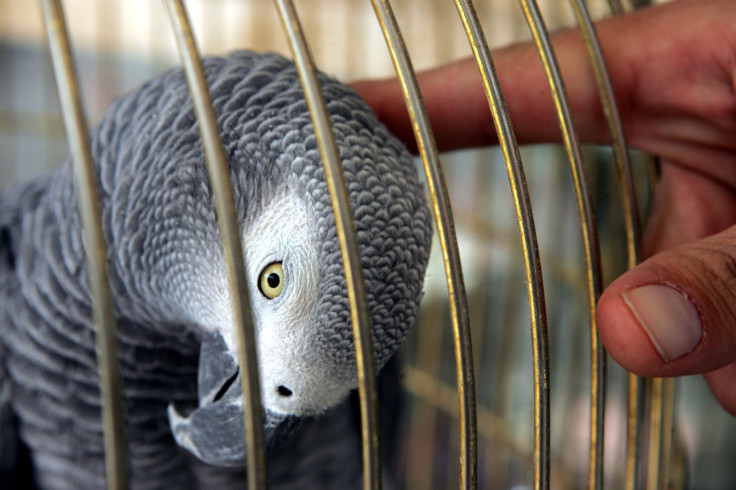African grey parrot gets new protected status due to extinction fears
International trade in the birds has been banned.

Wild African grey parrots now have the highest level of protection possible, after 2 million of the birds have been snatched from the wild.
It is still possible to trade birds bred in captivity but only if the breeders are registered with the Convention on International Trade in Endangered Species (CITES).
The African grey is one of the most trafficked birds in the world and its popularity has reduced breeding colonies in the wild to dangerously low levels.
Not all of the 182 CITES nations agreed with the ban, which went to a vote at a convention held in Johannesburg on Sunday (2 October 2016).
The Democratic Republic of the Congo, home to the largest African grey parrot population, argued against the new ban, saying it was based on a "doubtful hypothesis yet to be proved", according to the Guardian.
The proposal, put forward by Gabon and six other African nations including the EU and US, was passed, with 95 votes in favour.
The Ivory Coast CITES delegate said: "Birds know no borders, so we have to work together."
WWF global wildlife policy manager Dr Colman O'Criodain told the Press Association the "total ban on international commercial trade" is a "huge step forward", but stressed traffickers also needed to be targeted.
He added: "(It) will help to protect this extraordinary species from the rampant trapping and trading that has contributed to population collapses and local extinctions across Africa in recent decades.
"Fraud and corruption have enabled traffickers to vastly exceed current quotas and continue to harvest unsustainable numbers of African grey parrots from Congo's forests to feed the illegal trade.
"Banning the trade will make it easier for law enforcement agencies to crack down on the poachers and smugglers, and give the remaining wild populations some much-needed breathing space."
He said a "total trade ban was absolutely essential", as the bird was being "trapped and traded towards extinction in its last major bastion in the Congo basin".
Dr O'Criodain warned the ban alone "will not be enough", and stressed that illegal networks will continue to "plunder parrots" until countries target traffickers.
The African grey is a talkative and one of the oldest living birds, with some species living as long as 50 years. Its friendly nature makes it an easy prey for trappers.
However as many as 90% of all parrots taken from the wild die before they are smuggled, according to the Humane Society International.
© Copyright IBTimes 2025. All rights reserved.





















